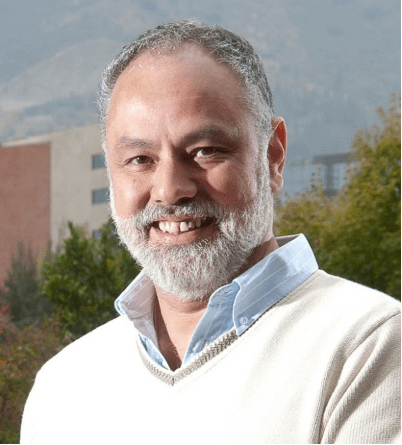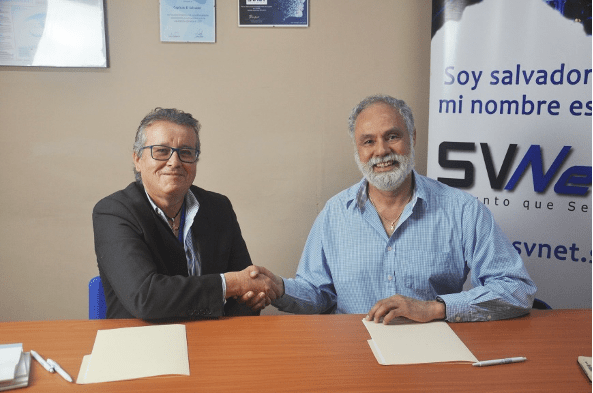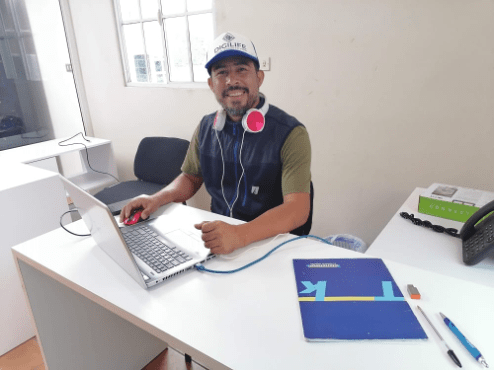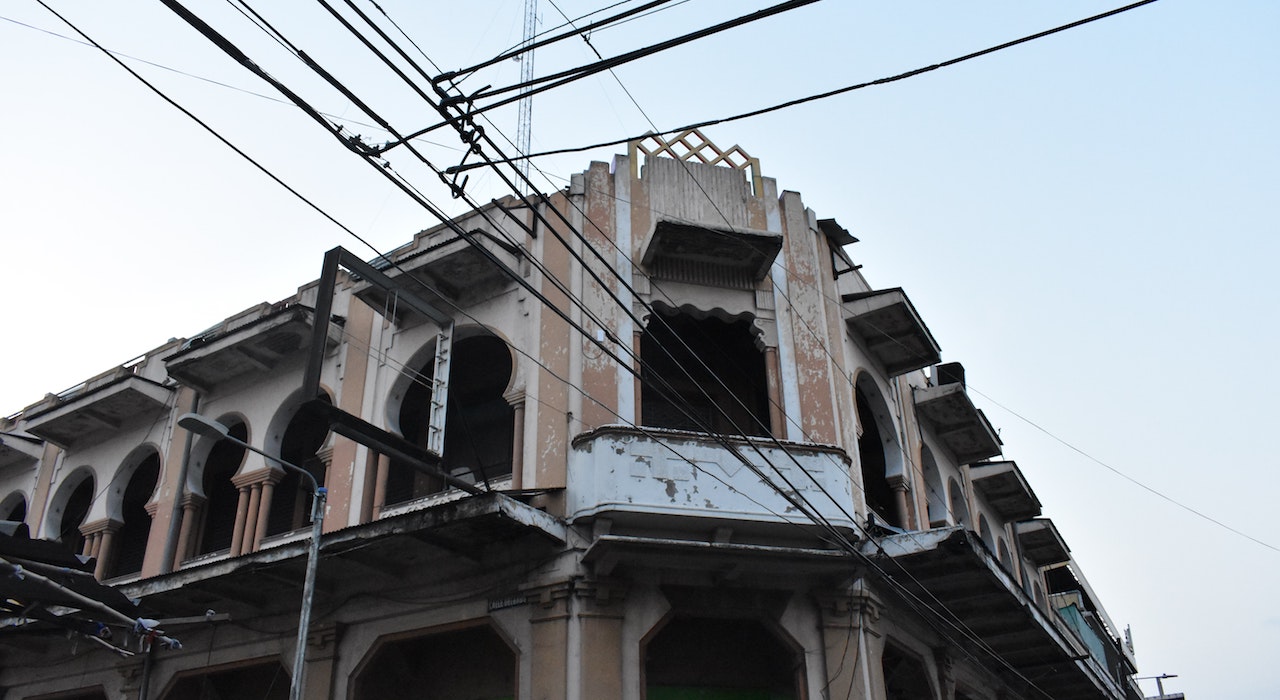
The history of El Salvador’s Internet exchange point (IXSal) is perhaps the longest and most complex, beginning at the end of the last century, in 1999, explains its founder, Lito Ibarra, with a smile. “It started out as a utopia after I started hearing about the experiences of other countries.”
Ibarra wrote proposals and received technical support from CABASE (an organization that runs most of Argentina’s IXPs). The Internet pioneer started contacting the country’s Internet providers and convening meetings.
In 2004, Ibarra legally founded a nonprofit organization, SVNet Association, to manage .sv domain name registrations, with the parallel aspiration of forging an IXP.
There has to be trust
“In those early years, I thought SVNet could be part of another NGO founded to develop and manage the IXP. I had a special role as a neutral organization in mind. Trust is important because you’re linking companies that are competing for the same customers. So, there has to be trust among members. They need to know that there won’t be any unfair competition and that their information won’t be misused.”
Ibarra recalls that when the meetings were attended by technicians, they loved the idea, but when lawyers from the telecommunications companies got involved, things slowed down.
“They said that if we created an IXP, their phone calls would diminish,” explains Ibarra. “Back then, it wasn’t common to speak online using Voice over IP and the companies that provided Internet service also provided telephone service. So, progress froze.”
In 2007, workshops were organized for technicians on Internet traffic exchange points and IPv6 addresses. The Internet Society and the Internet Address Registry for Latin America and the Caribbean (LACNIC) participated, and several entities offered to donate equipment, such as routers and servers.
The operators seemed interested but didn’t commit. Meanwhile, Ibarra’s work was voluntary, so his other responsibilities meant he couldn’t dedicate himself 100% to the chase.
An IXP would be bring faster Internet with reduced latency and lower international Internet transit costs
So, the years passed until 2013, when Ibarra lost his 27-year job as a computer science and networking administrator at the Central American University of José Simeón Cañas. The silver lining was that it allowed him to migrate to a dedicated full-time position as CEO of SVNet.
This time, he approached Internet providers one-by-one, explaining that an IXP would be bring faster Internet with reduced latency and lower international Internet transit costs. He explained that they would need to join and pay a minimal fee, since they were going to benefit. Some found it difficult to make a business case that would be acceptable to their superiors and boards to justify the investment, even if it was relatively small.
“Several of the providers are multinationals and they knew the benefits … so I just don’t understand their lack of commitment,” laments Ibarra. Still, he didn’t give up.
After some informal conversations between friends, Ibarra had found a neutral and free place to install the equipment to mount the IXP, at a commercial data center called DataGuard. Other international organizations, such as LACNIC, ICANN, the Internet Society and RIPE-NCC, also donated a copy of the “L” root name server, a RIPE anchor server, two additional servers, and other computers.
By then, Ibarra decided to propose the IXSal as a project that would be sponsored, developed, managed, and operated by SVNet.

“Everything started coming together, until finally in 2019 I managed to hire an expert company, Socium, which had installed Costa Rica’s IXP … to install the exchange point here.”
The Internet Society also donated a couple of route servers just before the pandemic hit. In parallel, IXSal joined LACNIC’s regional IXP association, LAC-IX.
“The pandemic delayed us a little, but by the end of 2020, we had everything installed on DataGuard, and we continued the meetings with providers to convince them,” says Ibarra.
So far, he has five providers who want to join, most of which are small Internet service providers (ISPs), and large one is very close to accepting.
This pandemic has changed the lives of all of us and today … the IXP can be beneficial
Among the converted is Telenetwork de El Salvador. “As a company, we see the IXP as a cutting-edge issue and that integration is important to us and our customers. We want to get moving with the IXP,” says its General Manager, Edgar Alvarado.
Telenetwork de El Salvador was focused on corporate clients but got into the residential market during the pandemic.
“This pandemic has changed the lives of all of us and today, work that was previously done in corporate buildings has now shifted towards the home office so we do think that the IXP can be beneficial,” says Alvarado. “I’ve seen the evolution of the infrastructure in our country and we still have limitations. But the IXP will give us the speed we’re looking for.”
Alvarado says Telenetwork de El Salvador is committed to the country’s development. He says merely allowing end users to upload their services to an on-premises cloud, for example, will drive the creation and supply of more services: “Currently, the end user is developing and creating, and when they do this, they want to put their creations on the Internet, but then they see that the roads aren’t in optimal condition. So, it’s like you have a Ferrari or a Porsche, but the roads aren’t in the best condition for them.”

He also believes that the IXP will strengthen connectivity and lower international transit costs. “If costs are lowered, we would have to expand our infrastructure further,” says Alvarado. “I understand the benefits for the country, for the end user, for the student sector, since virtually all classes are now virtual. This project is going to bring a lot of benefits.”
Alvarado also doesn’t think it’s necessary to wait for the large suppliers to kick-start the IXP: “I think the healthiest thing is to start with those who really want to be there. Time is passing and agility is a key asset for the development of this project.”
But Ibarra wants to wait, at least to be able to present the project to most of El Salvador’s suppliers, with the hopes that more participants will sign on, so they can start strong. He also wants all participants to sign the cooperation agreement.
Once the IXP is up and running, Ibarra plans to approach all the big content development networks (Netflix, Facebook, Google, etc.) to ask them for a point of presence or a cache.
Meanwhile, the IXSal has yet to begin exchanging traffic.
Ibarra says , “We have the party organized: the invitations, the music, the orchestra, the place, and the food. We’re just waiting for the guests.”
Image of San Salvador by Estefania Ventura via Unsplash

